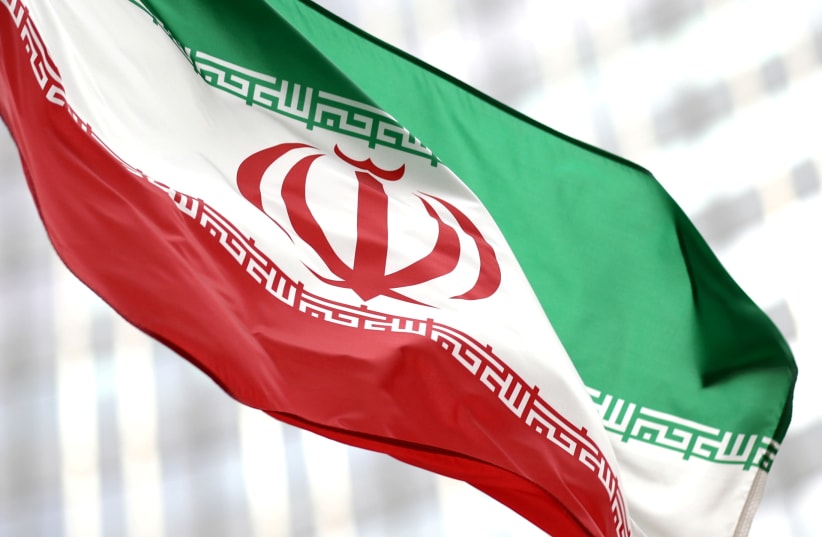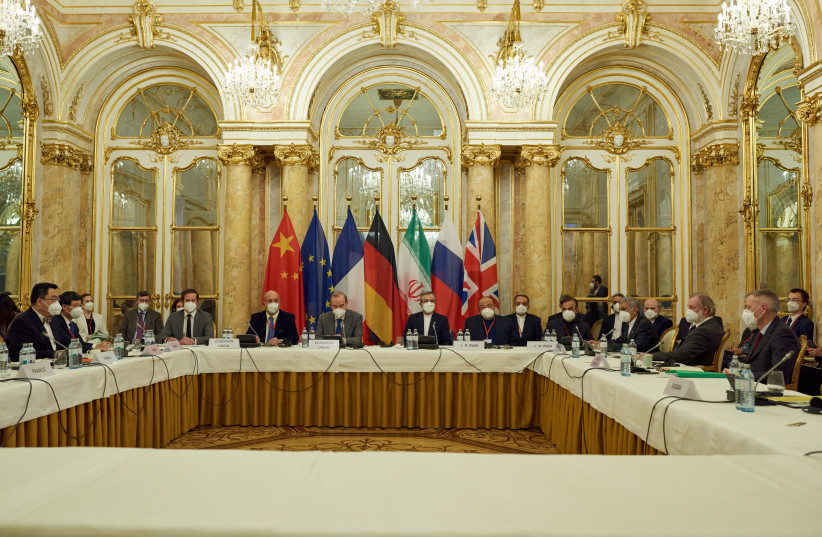As a seventh round of international talks among the UK, France, China, Russia, Germany and Iran on Tehran’s nuclear program resumed in Vienna on Monday after a five-month hiatus, Israel’s leaders spoke out in official statements released by the Government Press Office in English. Although their goal is essentially the same – to halt Iran’s nuclear ambitions – they conveyed slightly different messages.
It is worth publishing them for the record, starting with Prime Minister Naftali Bennett, who issued the following statement, articulating a tough policy not dissimilar from that of his predecessor, Benjamin Netanyahu:
“Today, Iran will be arriving at negotiations in Vienna with a clear goal: To end sanctions in exchange for almost nothing. Iran won’t just keep its nuclear program; from today, they’ll be getting paid for it. Iran doesn’t hide its intentions. Just a couple of days ago, the senior command of Iran’s Armed Forces declared, and I quote, ‘We will not back off from the annihilation of Israel, not even one millimeter.’”
Just this week, the Iranian regime shot its own people on the streets of Isfahan for daring to protest the lack of water in their country. Yes, they shot their own citizens just for being thirsty. Such a murderous regime should not be rewarded.
“Despite Iran’s violations and undermining of the nuclear inspections, it will be arriving at the negotiating table in Vienna, and there are those who think they deserve to have their sanctions removed and hundreds of billions of dollars poured right into their rotten regime. They’re wrong.
“Iran deserves no rewards, no bargain deals and no sanctions relief in return for their brutality. I call upon our allies around the world: Do not give in to Iran’s nuclear blackmail.”
Defense Minister Benny Gantz, who is scheduled to discuss the Iranian issue with US officials in Washington next week, was more conciliatory, not opposing international negotiations with Iran.
“In the past days, Israeli teams have shared intelligence with our friends around the world that points to Iran’s current process of dashing toward a nuclear weapon, blatantly violating the agreement that is in place with Europe.
“To our partners I stress – the time that passes must have a price expressed in sanctions or military alternatives, so that Iran will stop its nuclear race and its regional aggression.
“We do not oppose negotiations but we must not cooperate with their stalling. We recognize the international community’s work to reach a diplomatic solution with the Iranians, yet we must continue, as a strong and independent country, to maintain the capability to defend ourselves.”
Foreign Minister Yair Lapid, who on Tuesday wrapped up a three-day trip to London and Paris during which he met British Prime Minister Boris Johnson and French President Emanuel Macron, went a step further, urging Europe to ensure that sanctions on Iran are not removed, while maintaining a threat of military action and to prepare a “Plan B” should the talks with Tehran break down.
“After many years, Israel’s position is being heard and Israel’s position is firm,” Lapid told Macron. “Sanctions on Iran must not be removed. Sanctions must be tightened. A real military threat must be put before Iran because that is the only way to stop its race to become a nuclear power.”
Echoing a statement he made after meeting US Secretary of State Antony Blinken in Washington on October 13, Lapid stressed the need to develop an effective Plan B if the Islamic Republic refuses to return to substantive negotiations to salvage the 2015 nuclear deal known as the JCPOA.
Israel’s goal is to prevent Iran from producing sufficient enriched uranium to become a nuclear threshold state. With no real deadline set on the Vienna talks, Israeli officials are concerned that they could drag on for months, while Iran uses the time to continue its uranium enrichment program.
It is crucial at this stage for Israel to closely monitor the talks with Tehran and for Israeli leaders to convey a similar message in unison, clearly and effectively. Israel needs to stand up for its security and work together with the United States and its European allies to rein in Iran’s nuclear aspirations, which pose a threat not only to Israel, but to the entire world.

